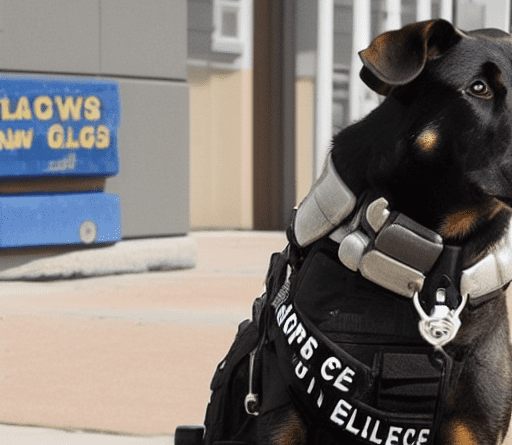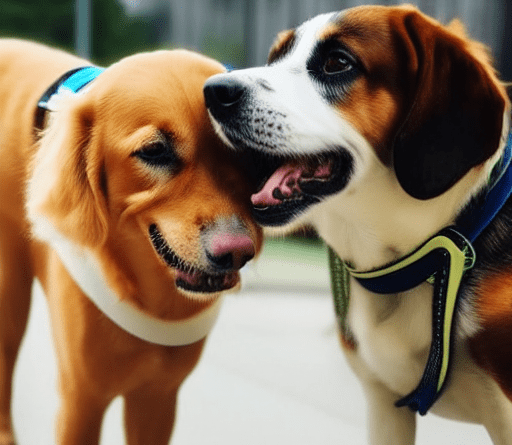
Dogs have been proven to be one of the most effective and trustworthy animals when it comes to their innate sense of smell and their undying loyalty. These attributes make them perfect for many jobs but especially when it comes to law enforcement and military operations. These loyal companion animals have been used in these fields for years and showcase the pride of the force when they are found in uniforms or parading around bases. In this article, we’ll explore the different roles of dogs in law enforcement and military operations.
History of Dogs in Law Enforcement and Military Operations
Dogs have been an integral part of the military and law enforcement operations throughout history. Records show that the Egyptians and Greeks started training dogs for various purposes such as patrolling, guarding, and tracking in ancient times. However, it was not until the late 19th century that dogs started to be used in law enforcement in Europe.
The Role of Dogs in Law Enforcement
Dogs are used in law enforcement for many purposes, including drug and explosives detection, search and rescue operations, tracking, and patrol duties. These are some of the major roles of dogs in law enforcement:
Drug and Explosives Detection
Dogs are trained to detect illegal drugs and explosives in different environments. They use their keen olfactory senses to identify the scent of illegal substances and alert their handler. Dogs are trained to look for the odors that are associated with these substances; hence, their sense of smell is so keen that they can detect minute traces.
Tracking
Dogs are trained to follow the scent of a particular person or object. They are effective in locating missing people or fugitives. They can follow the trail of a person’s footsteps or a particular scent, even over great distances or through difficult terrain. They are used by law enforcement agencies to track down criminals who may be trying to evade law enforcement.
Search and Rescue
Dogs are used in search and rescue operations to locate missing people. They can track a scent through rubble or in water, providing crucial assistance in disaster scenarios like mudslides, building collapse, or bridges collapse. Canines, with their advanced sense of smell, are an invaluable aid to emergency responders in finding and rescuing people in distress.
Patrol
Dogs can be trained to perform various patrol duties such as guarding, chasing criminals, and protecting their handlers. They are also used to keep public spaces, such as airports or stadiums, safe and secure. Their sharp senses, including hearing and sight, enable them to detect suspicious activities before they occur, helping law enforcement officers stay ahead of potential threats.
The Role of Dogs in Military Operations
Dogs in military operations are used for various reasons, such as detecting explosives or landmines, locating victims or enemies, and providing security. Here are some of their roles in military operations:
Detection
Dogs are used to detect explosives, landmines, and other dangerous material that can be injurious or lethal to soldiers. Their sense of smell is nearly 100 times better than humans, making them efficient in detecting dangerous explosives from a distance.
Patrol
Dogs in military operations are trained to help protect troops and secure buildings or spaces. They are used to guard military bases, sniff out drugs or weapons, detect intruders and potential terrorist attacks.
Search and Rescue
Dogs in military operations are useful for finding and saving injured or missing human beings. They are trained to search rubble and identified who needs medical attention. Military-trained dogs are involved in disasters like earthquakes, earthquakes, and other natural calamities.
Training Process for Dogs
To become an efficient part of law enforcement and military units, dogs go through rigorous training that includes obedience and behavior training, as well as specialized training in the specific tasks they will perform—such as drug or explosives detection, tracking, search and rescue, or patrol duties. The training process may last for several months or even years, depending on the dog and the skills they are learning.
Conclusion
The contribution of dogs to law enforcement and military has been invaluable. Their keen senses and loyalty make them excellent team members in these fields. Even though they are animas, they have high intelligence working closely with their handlers, so it’s not surprising that they have become a staple in law enforcement and military operations throughout the world.
FAQs
1. Can dogs be trained to do more than one job in Law Enforcement?
Yes, dogs can be trained to do several jobs in law enforcement, including patrol, drug detection, and search and rescue.
2. Is there an age limit for dogs to join the military?
The age limit for dogs to join the military is 18 months to two years.
3. Can dogs in military operations be retired?
Yes, dogs can be retired or adopted from military service after their time in service has been completed or they are deemed unsuitable for duty.
4. How long does it take to train a dog for military or law enforcement service?
The training period for a dog to become a military or law enforcement canine may last for several months to even years, depending on the stage they are learning.
5. How are dogs cared for while working in law enforcement or military operations?
Dogs in law enforcement and military operations are cared for by their handlers, who ensure that they receive proper food, shelter, medical care, and attention throughout their service in the force.




